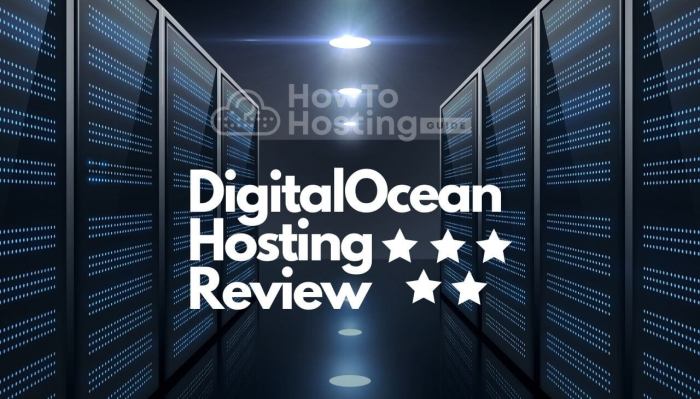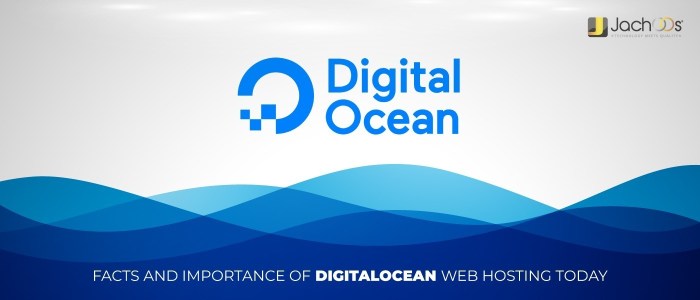How Secure Is Digital Ocean for Hosting Critical Data?
Exploring the security aspects of hosting critical data on Digital Ocean, this introduction sets the stage for a comprehensive discussion on the topic, providing insights that are both informative and engaging.
The subsequent paragraph will delve into the specifics of Digital Ocean's security measures and why it stands out among hosting providers.
Overview of Digital Ocean

Digital Ocean is a cloud infrastructure provider that offers a range of services for hosting solutions. Known for its simplicity and user-friendly interface, Digital Ocean has gained popularity among developers and businesses alike.Key features and services offered by Digital Ocean include:
Droplets
Virtual private servers that can be easily deployed and scaled to meet varying needs.
Spaces
Object storage with built-in CDN for storing and delivering large amounts of data.
Kubernetes
Managed Kubernetes clusters for containerized applications.
Databases
Managed database services for PostgreSQL, MySQL, and Redis.
Networking
Tools for managing domains, floating IPs, and private networking.Digital Ocean is a popular choice for hosting solutions due to its competitive pricing, reliable performance, and straightforward setup process. The platform also provides excellent documentation and customer support, making it easier for users to navigate and troubleshoot any issues that may arise.In terms of security measures, Digital Ocean implements robust data encryption, firewall protection, and regular security updates to safeguard critical data.
Compared to other hosting providers, Digital Ocean's focus on simplicity and usability does not compromise on security, making it a trusted option for hosting sensitive information.
Security Measures Implemented by Digital Ocean
When it comes to hosting critical data, security is paramount. Digital Ocean implements a range of security measures to ensure the protection of sensitive information.
Security Protocols and Encryption Methods
- Digital Ocean utilizes industry-standard security protocols such as SSL/TLS to encrypt data transmitted over networks.
- They also offer data encryption at rest using technologies like AES-256 to safeguard stored information.
- Multi-factor authentication (MFA) is available to add an extra layer of security for user accounts.
Data Protection Policies and Compliance Certifications
- Digital Ocean adheres to strict data protection policies to ensure the confidentiality and integrity of customer data.
- They comply with regulations such as GDPR and have certifications like ISO 27001 for information security management.
- Regular security audits and assessments are conducted to maintain compliance and identify potential vulnerabilities.
Physical Security of Data Centers
- Digital Ocean employs stringent measures to secure their data centers, including 24/7 monitoring and surveillance.
- Access controls, biometric scanners, and security guards are used to restrict entry to authorized personnel only.
- Redundant power supplies and backup systems are in place to ensure continuous operation and data availability.
Vulnerabilities and Threats
When hosting critical data on Digital Ocean, it is essential to be aware of the potential vulnerabilities and threats that could compromise the security of your information.
Common Vulnerabilities
- Weak Authentication: Inadequate password policies or the lack of multi-factor authentication can make it easier for unauthorized users to gain access to your data.
- Unpatched Software: Failure to regularly update and patch software can leave systems vulnerable to known security flaws.
- Insufficient Encryption: Data transmitted or stored without proper encryption can be intercepted and compromised by malicious actors.
Potential Threats
- DDoS Attacks: Digital Ocean servers can be targeted by Distributed Denial of Service attacks, which can disrupt services and potentially lead to data loss.
- Malware Infections: Malicious software can be introduced to Digital Ocean servers, compromising the security of hosted data and systems.
- Insider Threats: Authorized users with malicious intent can abuse their privileges to access or manipulate sensitive data.
Security Incidents
- In 2018, Digital Ocean disclosed a data breach that exposed customer billing information due to an unauthorized access incident.
- In 2020, Digital Ocean experienced a major DDoS attack that impacted its services and caused disruptions for customers hosting critical data.
Best Practices for Securing Critical Data on Digital Ocean

When it comes to hosting critical data on Digital Ocean, it is essential to implement best practices to ensure the security and integrity of your information. Below are some recommendations to help you set up secure configurations, perform regular backups, encrypt your data, and enhance access controls using multi-factor authentication.
Secure Configurations
- Regularly update your operating system, applications, and server software to patch known vulnerabilities.
- Implement firewall rules to restrict access to your server and only allow necessary ports and services.
- Disable root login and use SSH keys for secure remote access to your server.
Regular Backups and Data Encryption
- Perform regular backups of your critical data to a secure location to prevent data loss in case of a security breach.
- Encrypt sensitive data at rest and in transit using strong encryption algorithms to protect it from unauthorized access.
- Consider using tools like GPG or OpenSSL to encrypt your data before storing it on Digital Ocean servers.
Access Controls and Multi-Factor Authentication
- Implement role-based access controls to limit user permissions based on their job responsibilities and the principle of least privilege.
- Enable multi-factor authentication (MFA) for an additional layer of security when accessing your Digital Ocean account or server.
- Regularly review and audit user access to your server to identify and revoke any unnecessary privileges.
Closing Summary
In conclusion, this discussion highlights the key points regarding the security of critical data on Digital Ocean, leaving readers with a thorough understanding of the subject.
General Inquiries
What security protocols does Digital Ocean use?
Digital Ocean employs industry-standard security protocols like SSL encryption and firewall protection to safeguard data.
Does Digital Ocean provide compliance certifications for data protection?
Yes, Digital Ocean adheres to various compliance certifications such as GDPR and SOC 2 to ensure data protection.
How does Digital Ocean handle physical security of its data centers?
Digital Ocean implements strict access controls, surveillance systems, and security personnel to ensure physical security at its data centers.




